Diaries of C E W Bean, AWM38 3DRL 606/107/1 - April 1918 - Part 7
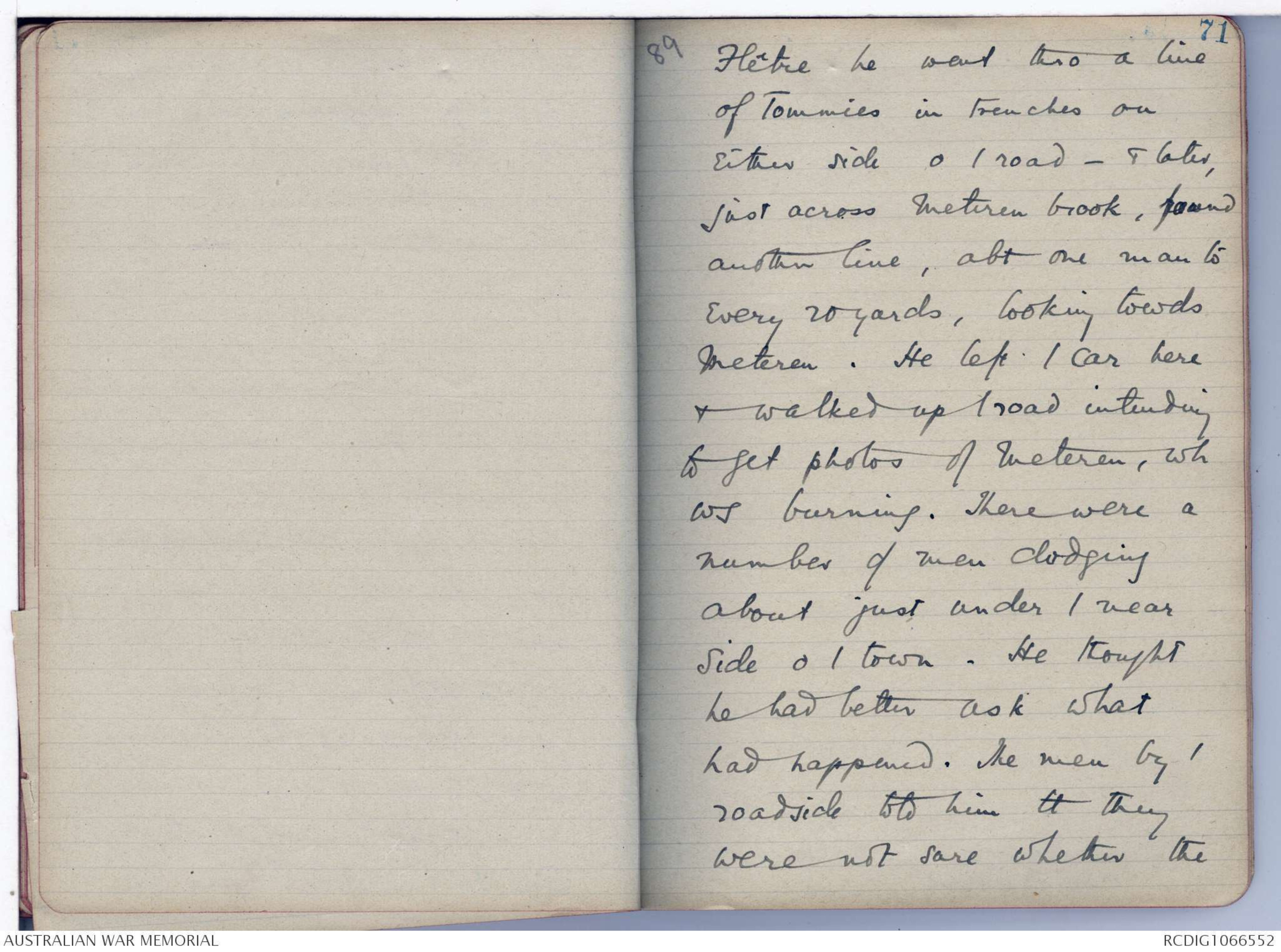
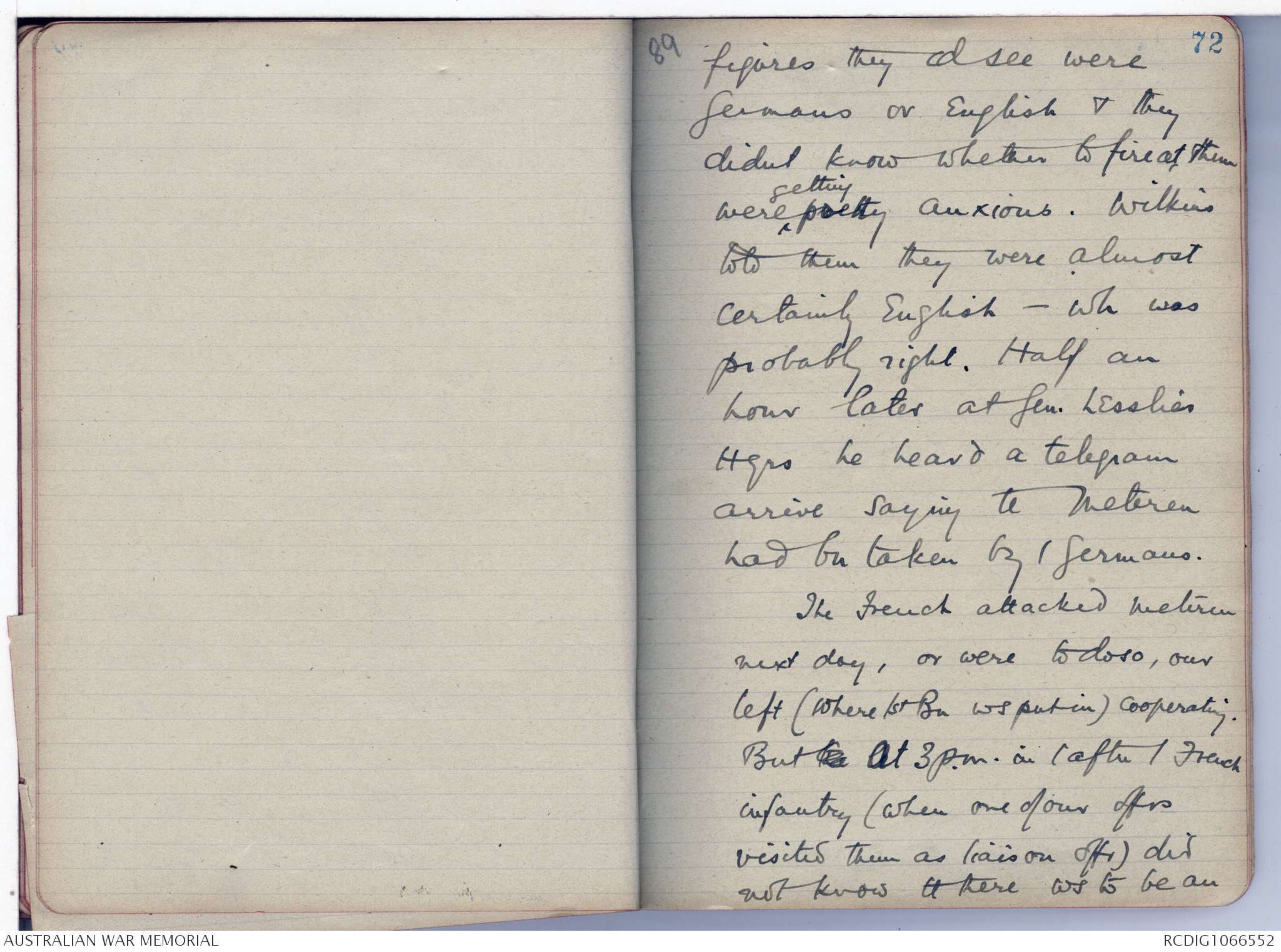
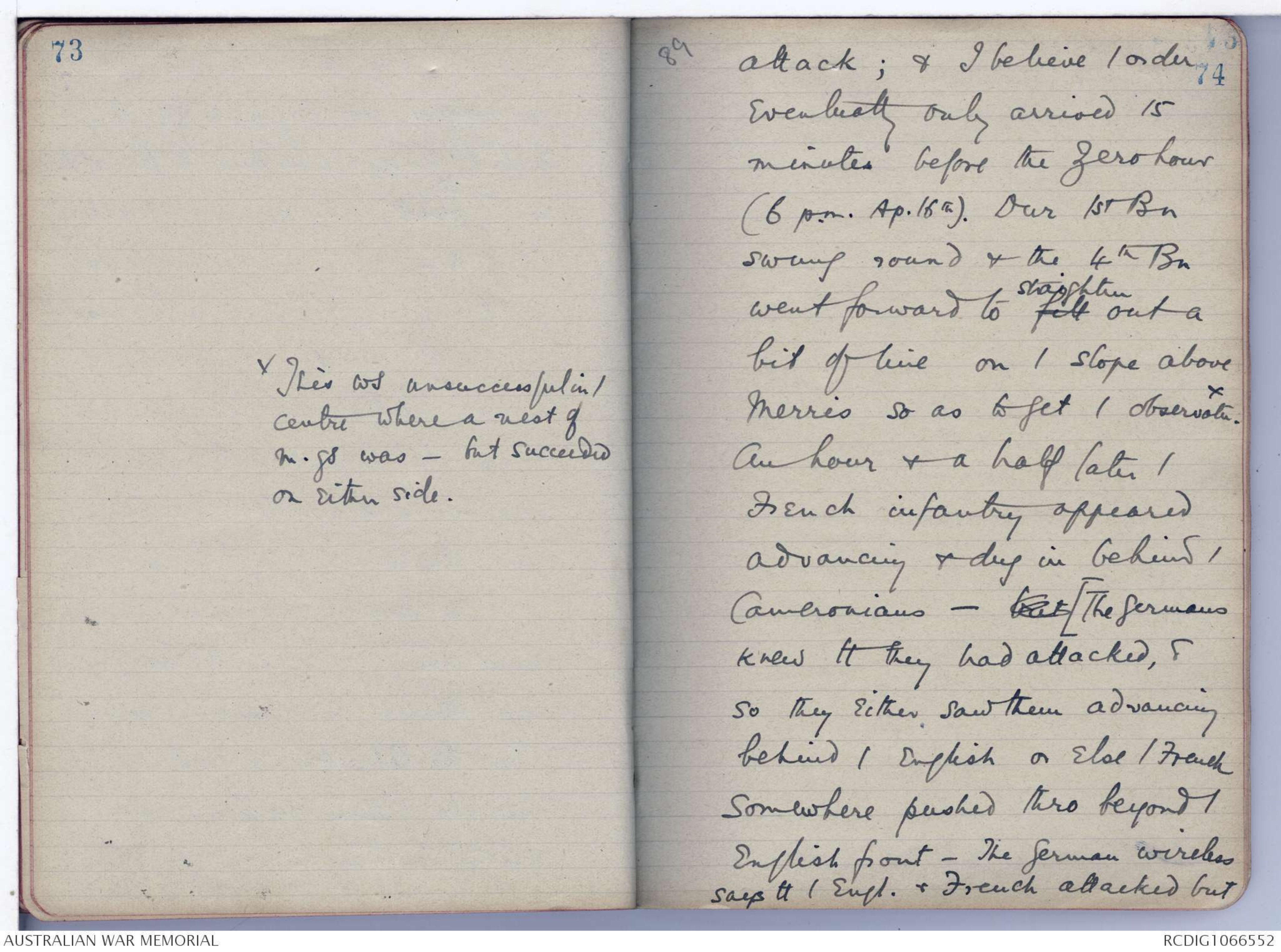
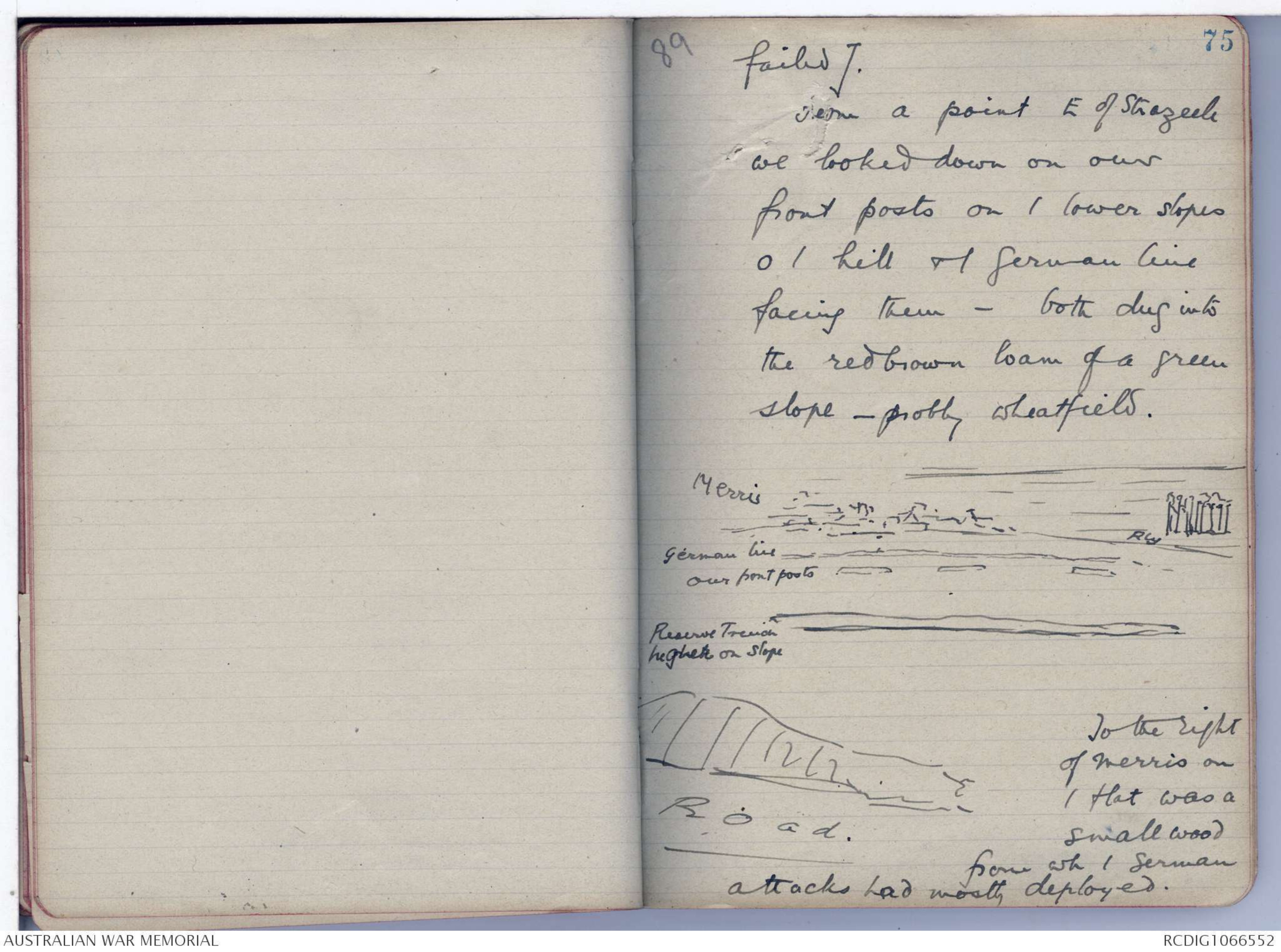
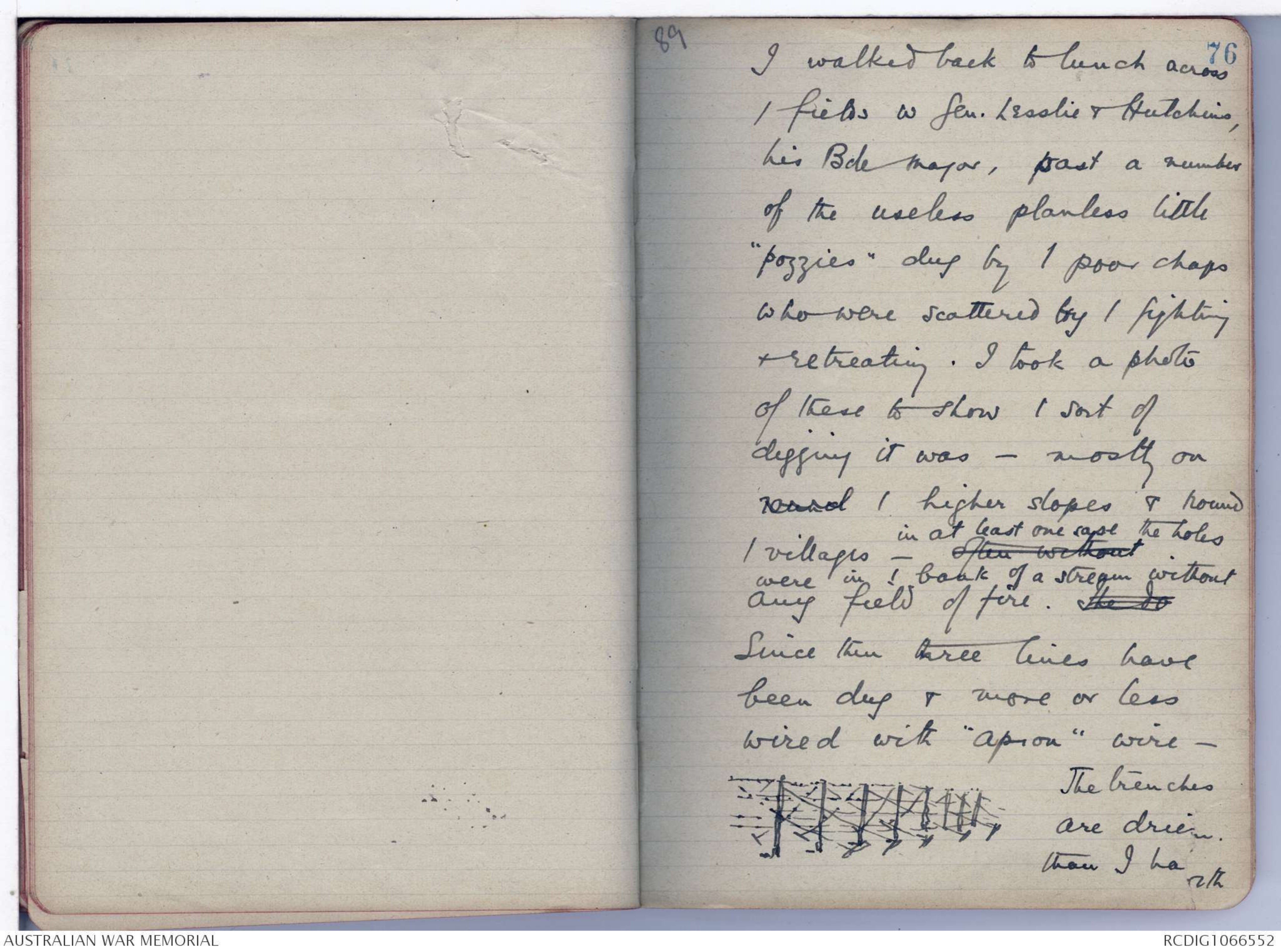
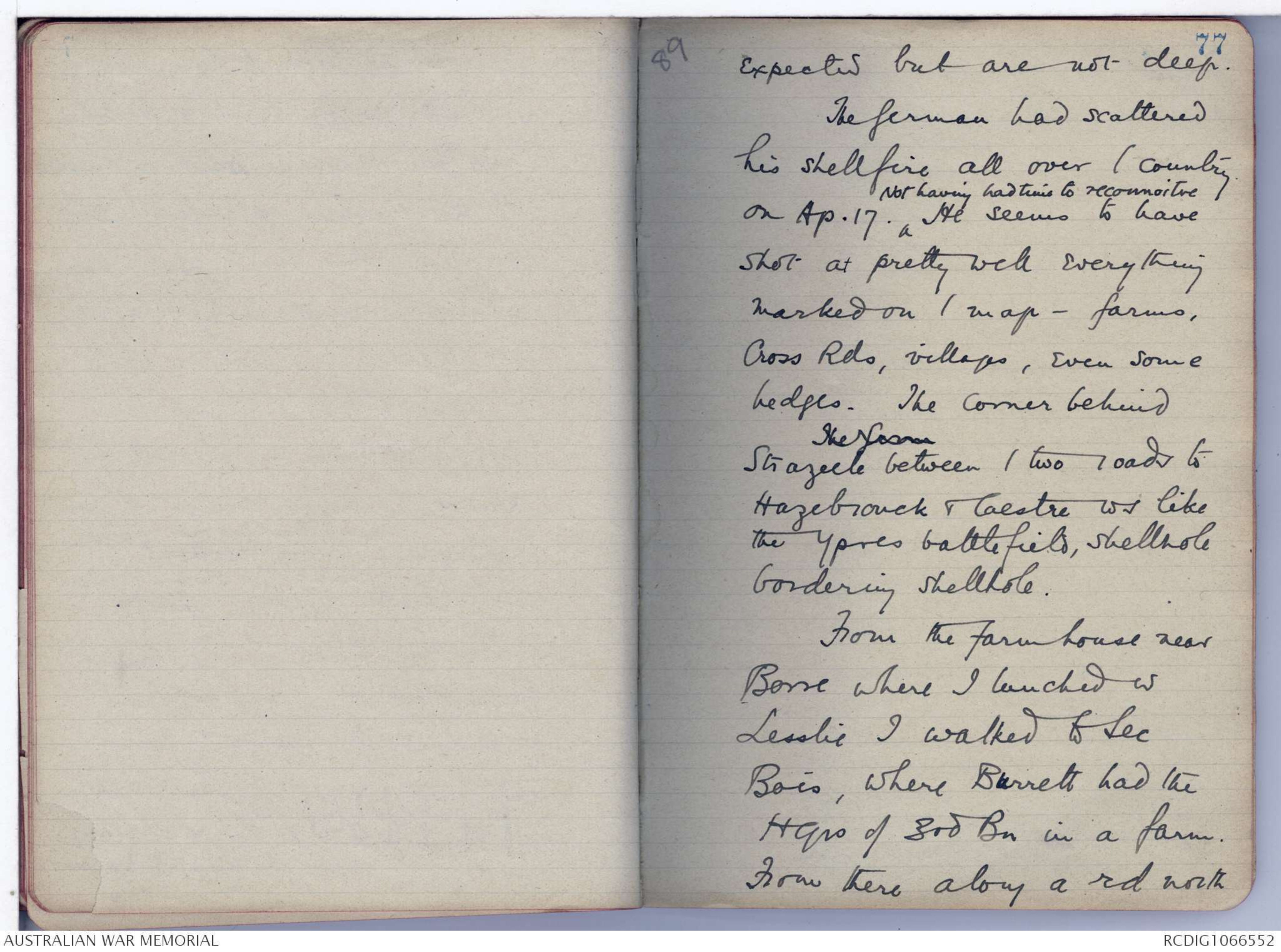
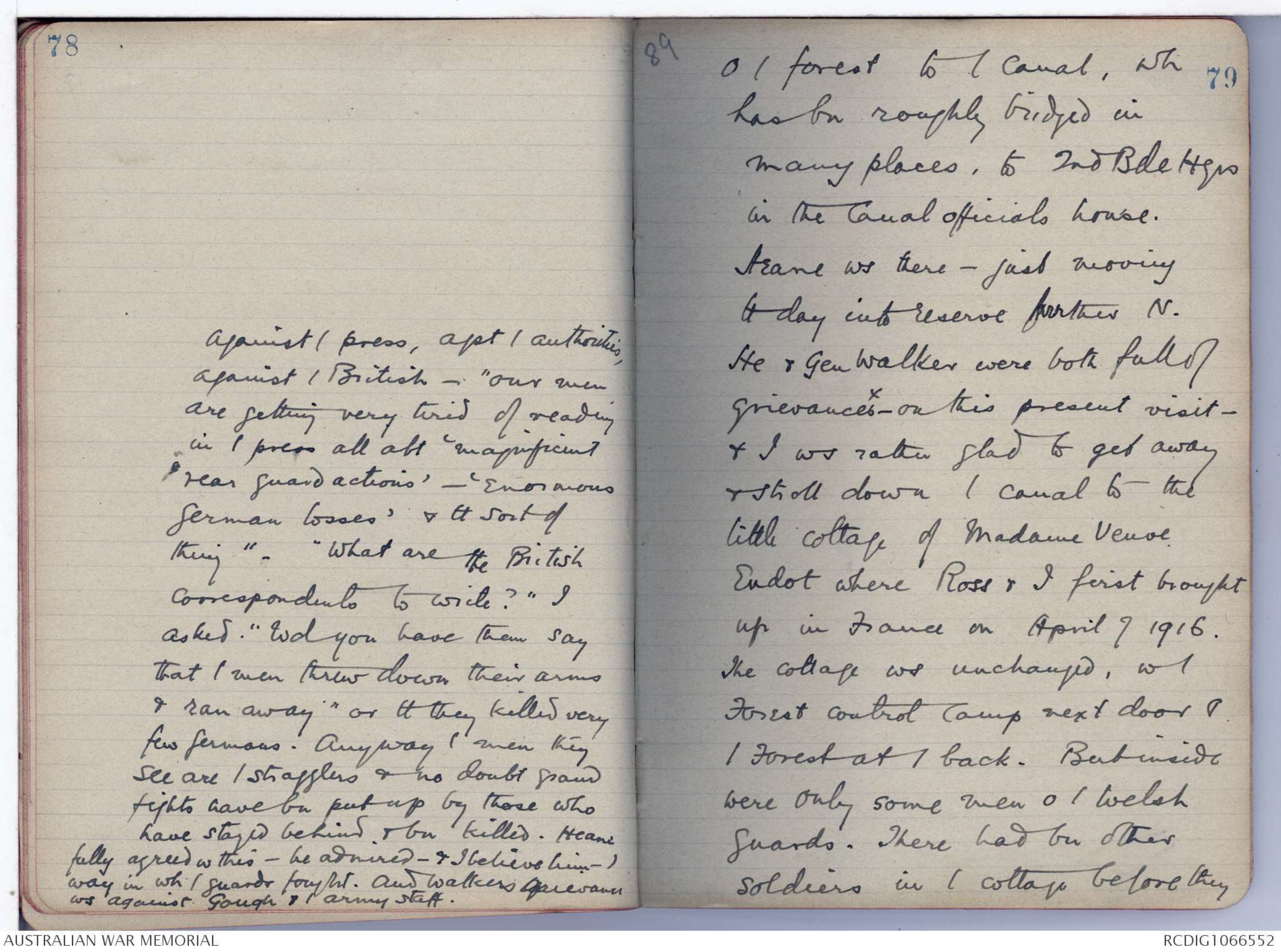
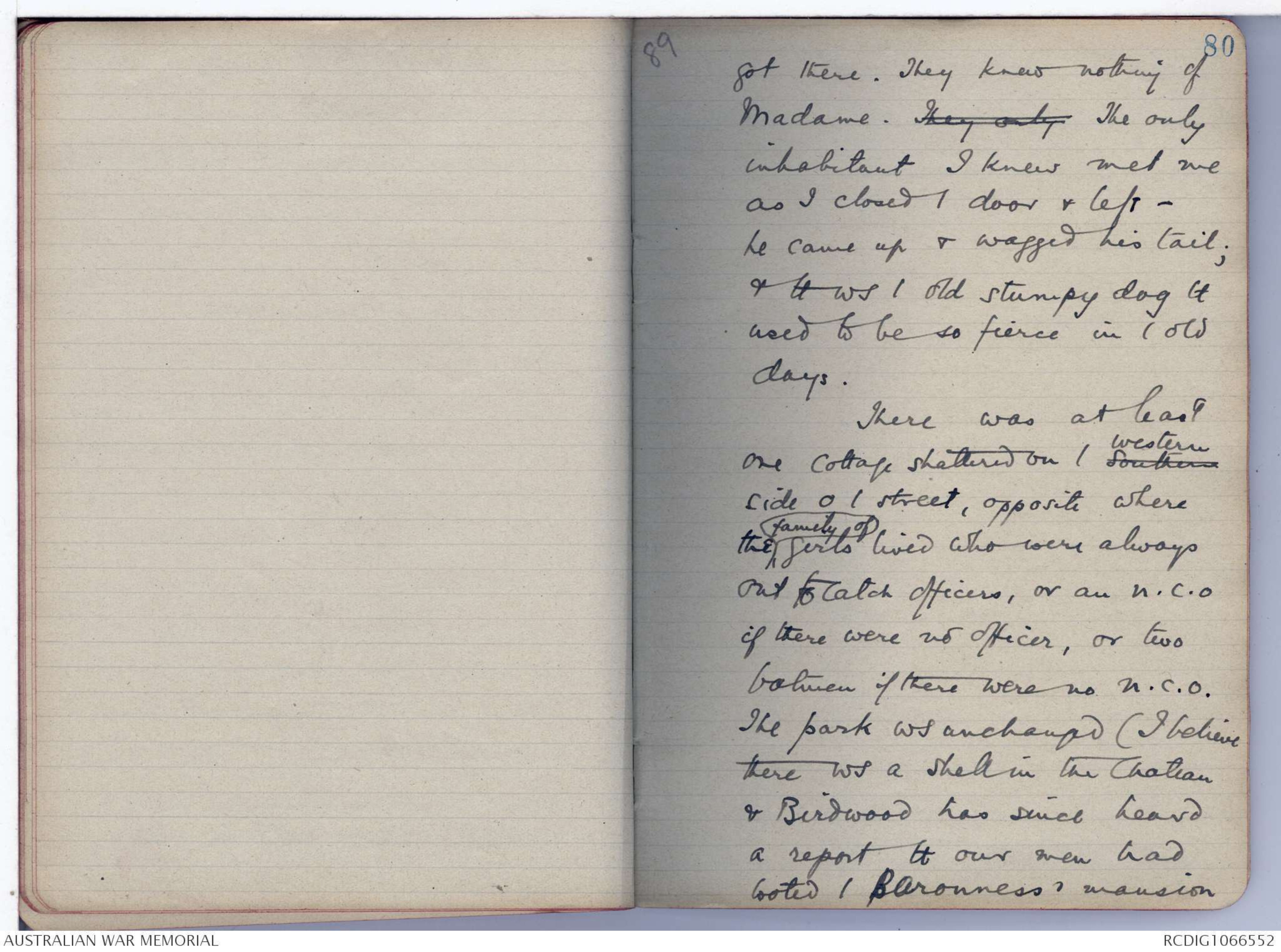
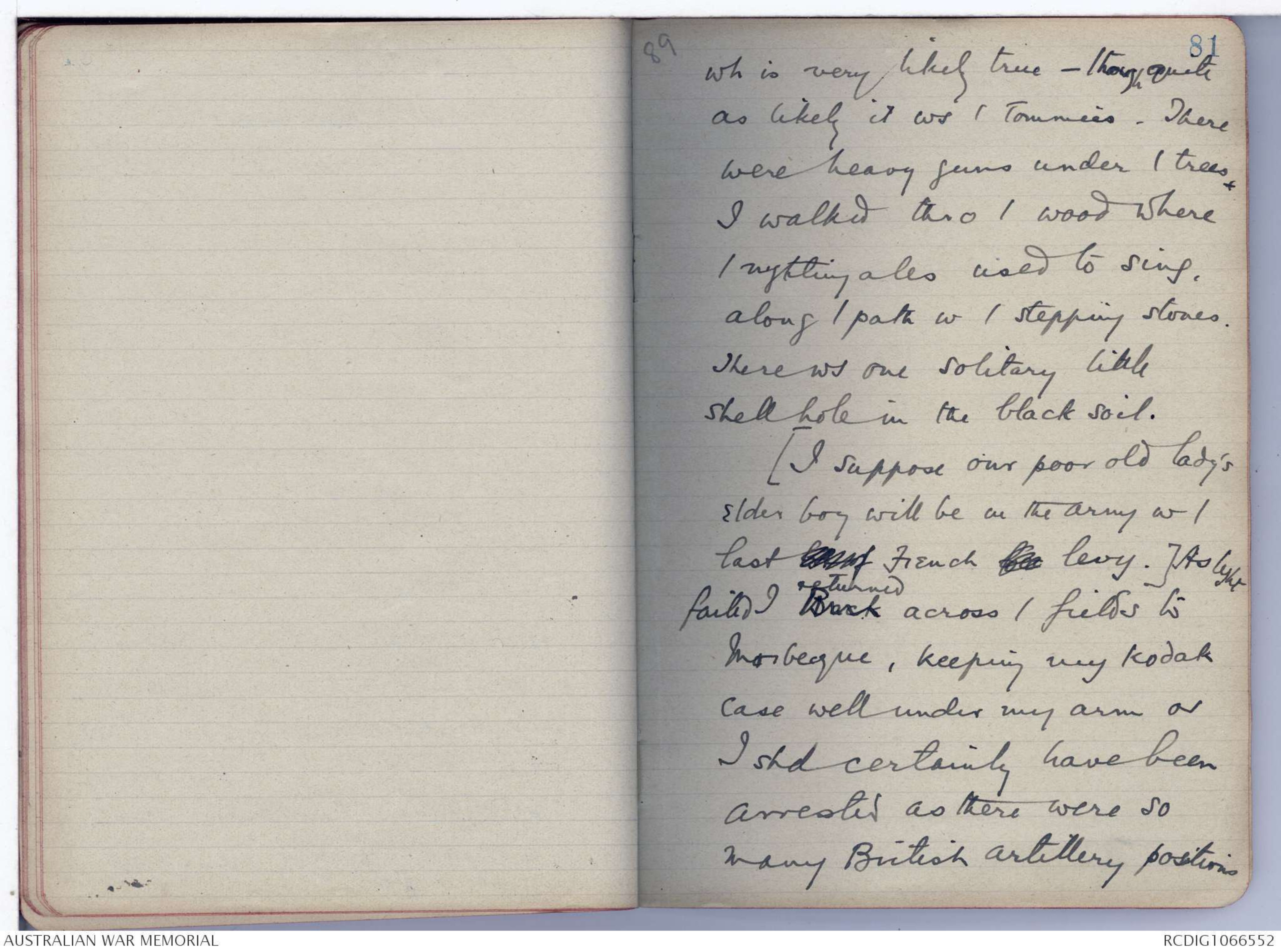
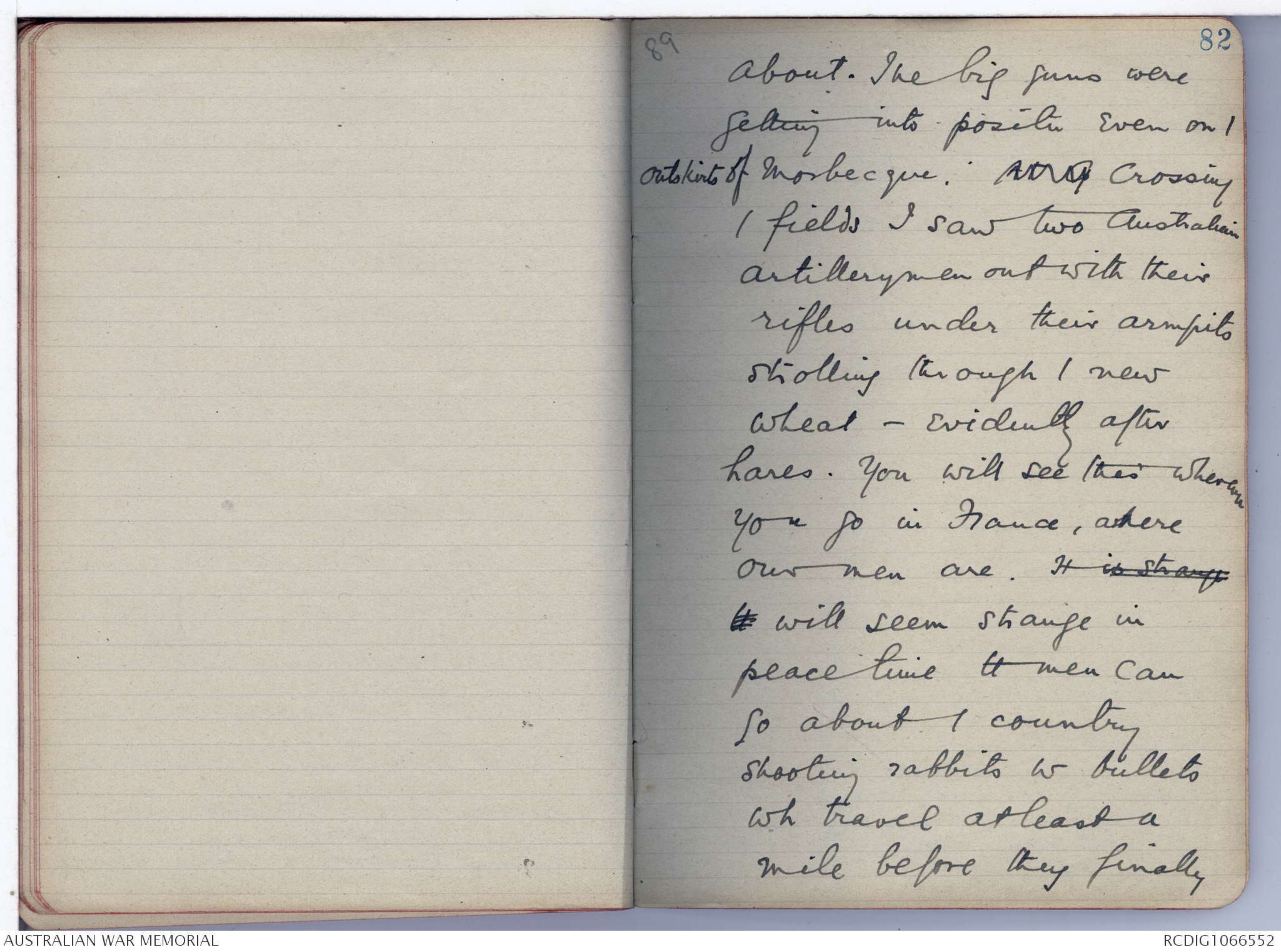
89
71
Flêtre he went thro a line
of Tommies in trenches on
either side o t road - & later,
just across Meteren brook, found
another line, abt one man to
every 20 yards, looking towds
Meteren. He left t car here
& walked up t road intending
to get photos of Meteren, wh
ws burning. There were a
number of men dodging
about just under t near
side o t town. He thought
he had better ask what
had happened. The men by t
roadside told him tt they
were not sure whether the
89
72
figures they cd see were
Germans or English & they
didnt know whether to fire at them
were getting pretty anxious. Wilkins
told them they were almost
certainly English - wh was
probably right. Half an
hour later at Gen. Lesslies
Hqrs he heard a telegram
arrive saying tt Meteren
had bn taken by t Germans.
The French attacked Meteren
next day, or were to do so, our
left (where 1st Bn ws put in) cooperating.
But xx At 3 p.m. in t aftn t French
infantry (when one of our offrs
visited them as liaison offr) did
not know tt there ws to be an
73
x This ws unsuccessful in t
centre where a next of
m. gs was - but succeeded
on either side.
89
74
attack; & I believe t order
eventually only arrived 15
minutes before the zero hour
(6 p.m. Ap. 16th). Our 1st Bn
swung round & the 4th Bn
went forward to fill straighten out a
bit of line on t slope above
Merris so as to get t observation. x
An hour & a half later t
French infantry appeared
advancing & dug in behind t
Cameronians - but [The Germans
knew tt they had attacked, &
so they either saw them advancing
behind t English or else t French
somewhere pushed thro beyond t
English front - The German wireless
says tt t Engl. & French attacked but
89
75
failed].
From a point E of Strazeele
we looked down on our
front posts on t lower slopes
o t hill of German line
facing them - both dug into
the redbrown loam of a green
slope - probly wheatfield.
Merris
German line
our front posts
Reserve Trench
highest on slope
Road.
To the right
of Merris on
t flat was a
small wood
from wh t German
attacks had mostly deployed.
89
76
I walked back to lunch across
t fields w Gen. Lesslie & Hutchins,
his Bde major, past a number
of the useless planless little
"pozzies" dug by t poor chaps
who were scattered by t fighting
& retreating. I took a photo
of these to show t sort of
digging it was - mostly onround t higher slopes & round
t villages - often without in at least one case the holes
were in t bank of a stream without
any field of fire. The do
Since then three lines have
been dug & more or less
wired with "apron" wire -
The trenches are drier
than I ha
89
77
expected but are not deep.
The German had scattered
his shellfire all over t country
on Ap. 17. Not having had time to reconnoitre He seems to have
shot at pretty well everything
marked on t map - farms,
Cross Rds, villages, even some
hedges. The corner behindthe farm
Strazeele between t two roads to
Hazebrouck & Caestre ws like
the Ypres battlefield, shellhole
bordering shellhole.
From the farm house near
Borre where I lunched w
Lesslie I walked to Sec
Bois, where Burrett had the
Hqrs of 3rd Bn in a farm.
From there along a rd north
78
against t press, agst t authorities,
against t British - "our men
are getting very tired of reading
in t press all abt 'magnificent" rear guard actions' - 'Enormous
German losses' & tt sort of
thing" - "What are the British
correspondents to write?" I
asked. "Wd you have them say
that t men threw down their arms
& ran away" or tt they killed very
few Germans. Anyway t men they
see are t stragglers & no doubt grand
fights have bn put up by those who
have stayed behind & bn killed. Heane
fully agreed w this - he admired - & I believe him - t
way in wh t guards fought. And Walkers grievance
ws against Gough & t army staff.
89
79
o t forest to t canal, wh
has bn roughly bridged in
many places, to 2nd Bde Hqrs
in the Canal officials house.
Heane ws there - just moving
tt day into reserve further N.
He & Gen Walker were both full of
grievances x - on this present visit -
& I ws rather glad to get away
& stroll down t canal to the
little cottage of Madame Veuve
Endot where Ross & I first brought
up in France on April of 1916.
The cottage ws unchanged, w t
Forest control camp next door &
t forest at t back. But inside
were only some men o t Welsh
guards. There had bn other
soldiers in t cottage before they
89
80
got there. They knew nothing of
Madame. They only The only
inhabitant I knew met me
as I closed t door & left -
he came up & wagged his tail;
& tt ws t old stumpy dog tt
used to be so fierce in t old
days.
There was at least
one cottage shattered on t southern western
side o t street, opposite where
the family of girls lived who were always
out to catch officers, or an n.c.o
if there were no officer, or two
batmen if there were no n.c.o.
The park ws unchanged (I believe
there ws a shell in the Chateau
& Birdwood has since heard
a report tt our men had
looted t Baronness' mansion
89
81
wh is very likely true - though quite
as likely it ws t Tommies. There
were heavy guns under t trees &
I walked thro t wood where
t nightingales used to sing,
along t path w t stepping stones.
There ws one solitary little
shell hole in the black soil.
[I suppose our poor old lady's
elder boy will be in the army w t
last lot of French le levy.] As light
failed I returned Back across t fields to
Morbecque, keeping my Kodak
case well under my arm or
I shd certainly have been
arrested as there were so
many British artillery positions
89
82
about. The big guns were
getting into positn even on t
outskirts of Morbecque. At a Crossing
t fields I saw two Australian
artillerymen out with their
rifles under their armpits
strolling through t new
wheat - evidently after
hares. You will see this wherever
you go in France, where
our men are. It is strangett will seem strange in
peace time tt men can
go about t country
shooting rabbits w bullets
wh travel at least a
mile before they finally
 Jacqueline Kennedy
Jacqueline KennedyThis transcription item is now locked to you for editing. To release the lock either Save your changes or Cancel.
This lock will be automatically released after 60 minutes of inactivity.